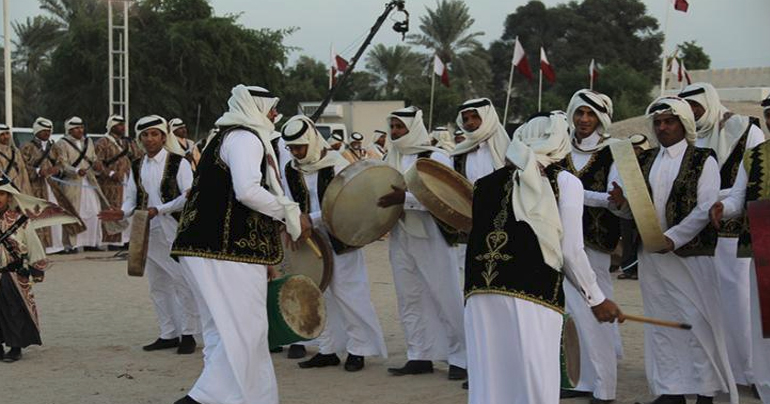
Cultural heritage of the Middle East
16 Aug 2015For any new businessman, traveler or just the inquisitive person, knowing about the culture of a particular country can be very useful. It is useful in order to do business, useful to better understand and enjoy a vacation and also better to understand the people and their behavior. Islam is the dictating religion in the Middle East and most of North Africa. Being a religion that has strict guidelines on way of life, behavior and rituals, the Middle Eastern people do pay close heed to the religious guidelines. A lot of their cultural heritage comes from a nomadic culture which is quiet common in a large dessert land. This has evolved over the years but they have remnants of their roots which are reflected in the form of activities and also their art and architecture.
The Arabic language also forms a good link between the Middle Eastern countries that helps establish a common thread that they use to communicate with each other. This helps people in the region to communicate and better explore each others unique cultural legacies. The Arabic language is a large common denominator between those countries; however, dialects can be so different from each other to a point where a person from Syria can hardly communicate with a person from Algeria.
Many of the Middle Eastern people have risen from a tribal culture. The tribes are strong and have their own set of rules for living in a society. Many of the tribal traditions and practices such as community dining still prevail in most parts. While to a Westerner this tradition might seem messy or offensive, they should remember that this is the way a Middle Eastern tribesman expresses his willingness to accept you into his fold of trusted members. This dining etiquette sets the tone for many professional relationships because the Middle Eastern people do not have strong differentiations between professional and personal spaces. So the phrase, ‘If you can’t beat them, join them’ – holds true in this situation.
Preserving this heritage has been a tough task over the past decade with the increase in strife and war in the region. Preserving cultural identity is always important but in a region torn by strife and political violence it becomes that much more important to pay attention to it. There are many NGOs and individuals who are trying their best to document and preserve many of the important legacies that have given the people of this region their unique identities. This isn’t just for the purpose of creating historical records but also to give future generations a reference to their ancestry.
What people say

A business leader with a clear objective to Build a Legacy through his business acumen and passion to excel, being associated with Dr Tejinder opens up new avenues for learning.

Dr Tejinder Singh , the man who taught me to teach and lead. My first and only professional Guru who would run the mile first and push me to walk that . A wonderful human being and an exceptional professional.

Tejinder is one of the most amazing client/business partner that I have ever met.

I met Bhattia sahib once and found him very friendly,intelligent and very focused head of an efficient organisation.

In my association with Tejinder I have found him to be very frank in his views.He is very strong in his domain knowledge and also has sharp commercial acumen.

I was hired by Tejinder Sir, in the year 2003, which was also the turning point in my career.

My 1st Impression about Mr. Tejinder Singh Bhatia - An Exteremely Confident Professional, Who knows What he is Doing and Where he wants to Reach.

He was a dedicated and sincere person and always followed pragmatic approach while fulfilling his job responsilbilites.

I am priviledge to work under him, he is an excellent Leader where team always ready to work for him even at oddest hour of the day.